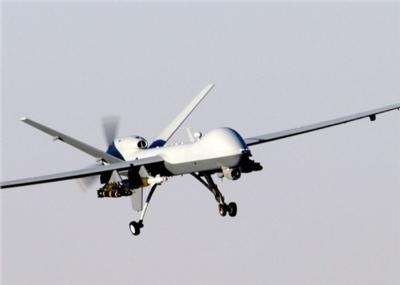Mon, Feb 23, 2015
Will Make Unmanned Weapons Systems More Available To Allies
A new policy announced by the U.S. State Department will loosen export restrictions in armed UAVs, allowing U.S. allies greater access to the weapons systems.

The policy was released Tuesday by the state department.
The Washington Post reports that Italy, Turkey, and U.S. allies in the Persian Gulf region have been anxious to acquire the aircraft. It also allows U.S. defense contractors to capture a greater share of the global arms market.
So far, the U.S. has sold armed UAVs only to Britain, according to officials. Unarmed systems have been sold to other allies such as France and Italy.
According to the state department document, the new export policy puts in place stringent conditions on the sale or transfer of military UAS, including potential requirements for:
- Sales and transfers of sensitive systems to be made through the government-to-government Foreign Military Sales program;
- Review of potential transfers to be made through the Department of Defense Technology Security and Foreign Disclosure processes;
- Each recipient nation to be required to agree to end-use assurances as a condition of sale or transfer;
- End-use monitoring and potential additional security conditions to be required; and
- All sales and transfers to include agreement to principles for proper use.
The new policy also maintains the United States’ long-standing commitments under the Missile Technology Control Regime (MTCR), which subjects transfers of military and commercial systems that cross the threshold of MTCR Category I (i.e., UAS that are capable of a range of at least 300 kilometers and are capable of carrying a payload of at least 500 kilograms) to a “strong presumption of denial” for export but also permits such exports on “rare occasions” that are well justified in terms of the nonproliferation and export control factors specified in the MTCR Guidelines.
It also outlines principles for proper use of U.S.-origin military UAS. All commercial UAS will be reviewed under the requirements and licensing policies described in the Export Administration Regulations.
(Image from file)
More News
He Attempted To Restart The Engine Three Times. On The Third Restart Attempt, He Noticed That Flames Were Coming Out From The Right Wing Near The Fuel Cap Analysis: The pilot repor>[...]
Make Sure You NEVER Miss A New Story From Aero-News Network Do you ever feel like you never see posts from a certain person or page on Facebook or Instagram? Here’s how you c>[...]
From 2009 (YouTube Edition): Leading Air Show Performers Give Their Best Advice for Newcomers On December 6th through December 9th, the Paris Las Vegas Hotel hosted over 1,500 air >[...]
Aero Linx: NASA ASRS ASRS captures confidential reports, analyzes the resulting aviation safety data, and disseminates vital information to the aviation community. The ASRS is an i>[...]
“For our inaugural Pylon Racing Seminar in Roswell, we were thrilled to certify 60 pilots across our six closed-course pylon race classes. Not only did this year’s PRS >[...]
 NTSB Final Report: Rutan Long-EZ
NTSB Final Report: Rutan Long-EZ ANN FAQ: Turn On Post Notifications
ANN FAQ: Turn On Post Notifications Classic Aero-TV: ICAS Perspectives - Advice for New Air Show Performers
Classic Aero-TV: ICAS Perspectives - Advice for New Air Show Performers ANN's Daily Aero-Linx (06.28.25)
ANN's Daily Aero-Linx (06.28.25) Aero-News: Quote of the Day (06.28.25)
Aero-News: Quote of the Day (06.28.25)



